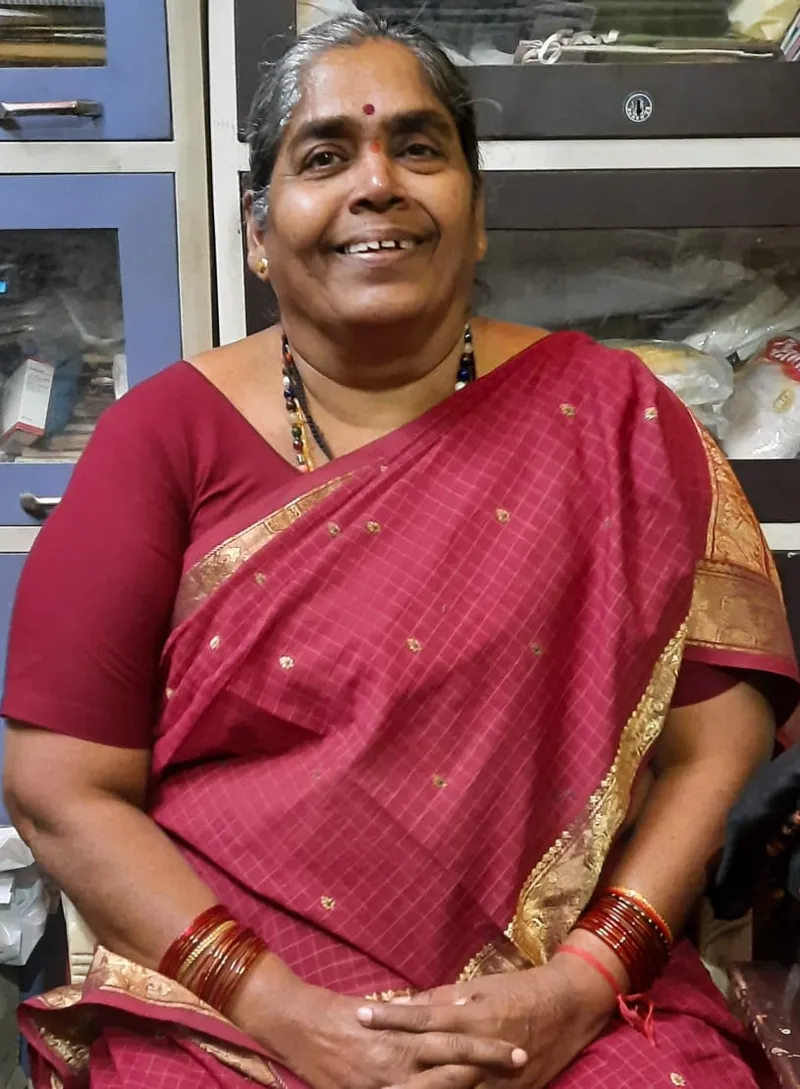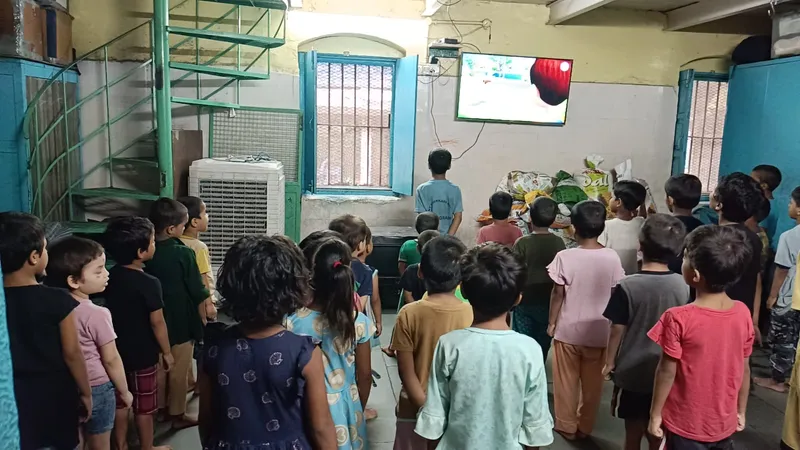This Delhi shelter home founder is breaking the chains of second-generation sex trade
Lalitha S.N. Nayak, in her centres across Delhi, helps children of female sex workers build their future by empowering them through education. Here's how she does it.
For 28-year-old Anita Verma (name changed) a teacher in New Delhi, her childhood was anything but ordinary. Her mother, who was forced into the sex trade in the early 1990s, like most mothers in the trade was forced to make a tough decision—to either take her child along with her or leave her in a shelter home.
When Verma was just three years old, her mother made the decision to place her in the care of Lalitha S.N. Nayak, a social worker and the founder of the SMS Centre for Children of Women in Prostitution on GB Road—a red light district.
According to Nayak, under her support in her shelter home, Verma received the education and nurturing she needed to thrive. In 2017, her journey came full circle when she liberated her mother from the perils of working in a brothel.
Over the years, many young children like Verma have grown up in Nayak’s shelter. Through the education provided, they have been able to break free from the vicious cycle of second-generation sex trading.
In the beginning

Lalitha S.N. Nayak
Four years after she moved to Delhi in 1988, she was looking to continue building on her work she started in Karnataka. Around this time, she began reading several reports about GB Road.
“I still remember my first day in the area,” she says. “We were walking up the steps of a brothel, I went up to a few of the women there and began talking, it was as if they connected with me.”
A year later in 1989, she learnt that the women were being tested for HIV/AIDS by AIIMS and ICMR without any awareness. From there on Nayak and other members of her organisation began educating the community on HIV/AIDS. Additionally, they focused on promoting condom use under the guise of family planning as the women and the Ministry of Health believed condoms were solely for family planning.
This also eventually led Nayak to set up a daycare in 1991. “The children living in the brothels see and hear inappropriate things at a very young age. These children don’t have a safe space. Our shelter homes not only provide them with a safe home but also aims at providing these children with the right education so that they can break free from the second-generation sex trading and make a better future for themselves,” Nayak tells HerStory.
Beyond the first obstacle
Later in 2009, the NGO decided to shut down all its social projects. “It was an extremely difficult time as I needed financial support but convincing people to come forward and help was very challenging,” she adds.
Determined, she continued to find ways to keep her work going. In the same year, SPID Society for Participatory Integrated Development (SPID), an Indian Non-Governmental Organisation collaborated with her to run the centre and provided the needed financial support required.
In 2012, this daycare centre was fully converted into a 24/7 shelter home to provide shelter, education and food to the children of female sex workers. The shelter is registered under the Juvenile Justice (Care and Protection of Children) Act, 2015.
“Before this centre, there was nowhere for the children to go. Very few mothers would get their children educated. It was not a healthy environment for a child,” she says.
Most mothers wanted their children to get out of the brothels, often requesting Nayak to take in their children into the shelter full-time. “We started the centre to ensure that second-generation trafficking doesn’t take place,” she adds.
Building blocks for a future
Nayak’s shelter home provides children under its care with remedial classes in subjects like English, Hindi, Punjabi, Social Science and Maths. Additionally, they also conduct activities like daily field visits, medical follow-ups, intensive counselling, awareness programmes through puppet shows, storytelling, songs and dance activities, and more. Children also receive skill training in courses like nursing, computer education, customer relations and sales, and office administration, alongside vocational training in jewellery making, tailoring and more.
Additionally, they are enrolled in government schools or government-aided schools to get formal education. After their formal schooling, they are assisted with securing places in diploma courses of their choice. “Some have become nurses, teachers, software engineers and whatnot. Many of them have taken their mother out of the brothel as well,” says Nayak.

The centre—which began in a small room within the GB Road area—has grown to four centres across Delhi. These centres are thoughtfully categorised to cater to the specific needs of the children: one for boys and girls below the age of 10, another for girls above 10 years old, a separate one for boys above 10 years old, and finally, one dedicated to girls above 18 years old.
Each centre has a cook and at least four teachers. Currently, there are 125 children in its four centres.
While not an active advocate for the legalisation of the sex trade, Nayak believes that women in evolved in sex work are entitled to basic human rights. As such with the help of SPID, the centre also helps sex workers get Aadhar cards, open bank accounts, and get voter IDs.
Along the way, Nayak has faced several obstacles—from pimps misbehaving at brothels to misinformation spread about shelters to mothers. Despite this, she is determined to provide well-rounded support for every child who walks through her shelter’s door.







